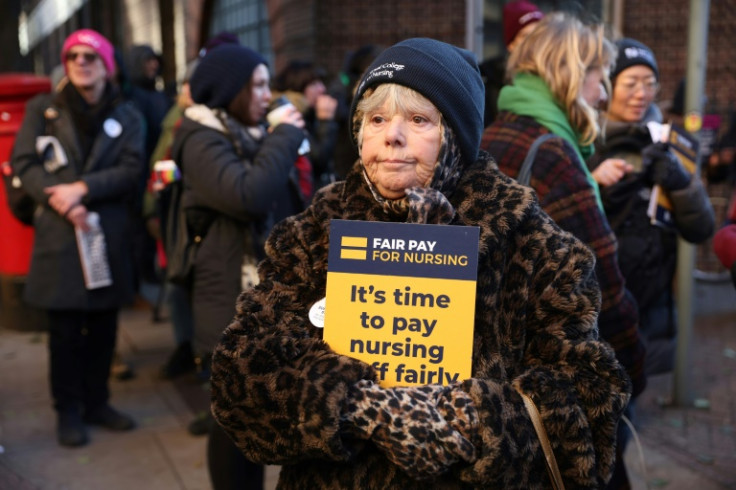UK unveils cost-of-living budget as mass strikes hit nation
Britain on Wednesday unveils a new cost-of-living budget, including more help on soaring energy bills, but the government is set to stand firm on rising public sector pay demands as the country endures a fresh wave of strikes.

Britain on Wednesday unveils a new cost-of-living budget, including more help on soaring energy bills, but the government is set to stand firm on rising public sector pay demands as the country endures a fresh wave of strikes.
Finance minister Jeremy Hunt delivers his tax and spending plan to parliament from 1230 GMT, as teachers, junior doctors, civil servants, BBC journalists and drivers on London's underground Tube railway stage the latest day of mass walkouts.
Public and private sector workers show little sign of ending strike action that began last year when rocketing inflation slashed the value of wages.
UK inflation remains at above 10 percent.
The government Wednesday said it would extend a subsidy on energy bills for a further three months after the invasion of Ukraine by oil and gas producer Russia sent them surging.
"Continuing to hold down energy bills is part of our plan to help hardworking families with the cost of living and halve inflation this year," Prime Minister Rishi Sunak said in a statement.
The Conservative administration has meanwhile flagged increased childcare funding and other proposals aimed at encouraging parents, the over-50s and others back into the jobs market.
It is looking to fill 1.1 million staff vacancies -- in part caused by a lack of EU workers following Brexit and owing to a record number of people classed as long-term sick.
Chancellor of the Exchequer Hunt is expected to announce that workers can put more tax-free money into their private pensions, even if many will not have the disposable income to do so.
"Reports of senior doctors retiring early due to the impact of pension tax allowances... have undoubtedly been of particular concern to the government given the pressures already on the health system following the pandemic," noted Tom Selby, head of retirement policy at AJ Bell.
In neighbouring France, the Senate at the weekend voted to approve a deeply unpopular reform to the country's pension system.
The headline measure is a hike in the minimum retirement age to 64 from 62, seen by many as unfair to people who started working young.
Britain's retirement age of 66 is set to increase before the end of the decade, meaning a longer wait to access the state pension. Private pensions are available at an earlier age.
As well as pay concerns, health staff are protesting against overwork brought on by labour shortages.
Sunak's spokesman said the government wanted to work with unions to achieve "fair and reasonable" pay rises.
"But we've been clear that we want to see strike action end before we do so."
Hunt has insisted the government must keep a tight rein on spending after debt jumped during the height of the Covid pandemic.
The National Education Union on Wednesday threatened to step up action should the government fail to put "money on the table".
"Shamefully, ministers don't seem interested in giving their own employees a fair pay rise to help them through the cost-of-living crisis and beyond," it added as schools shut across the country.
Other budget plans already announced include an extra ?5 billion ($6.1 billion) on defence over the next two years, focused on nuclear resilience and replenishing depleted ammunition stocks.
Britain has also announced a 20-year plan to capture carbon and commit to nuclear energy as it strengthens energy supplies and seeks a net zero economy by mid-century.

© Copyright AFP 2025. All rights reserved.




















